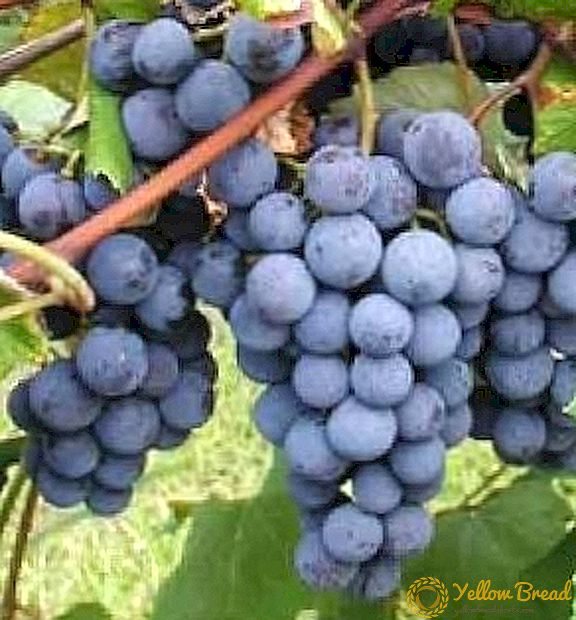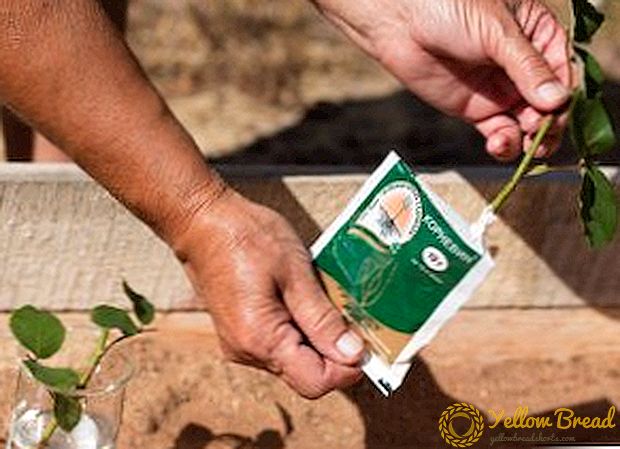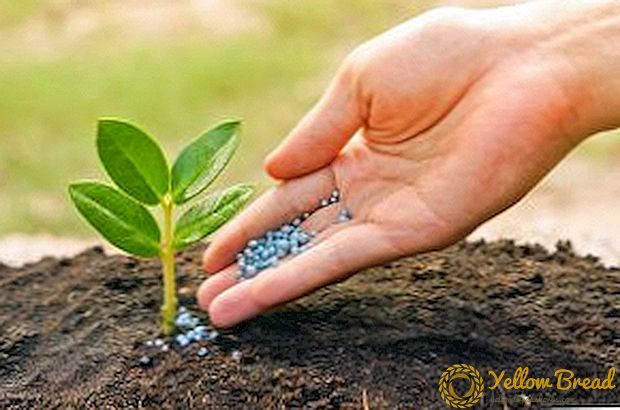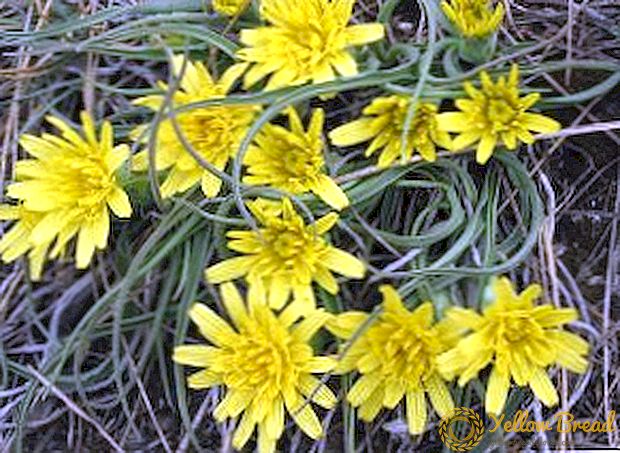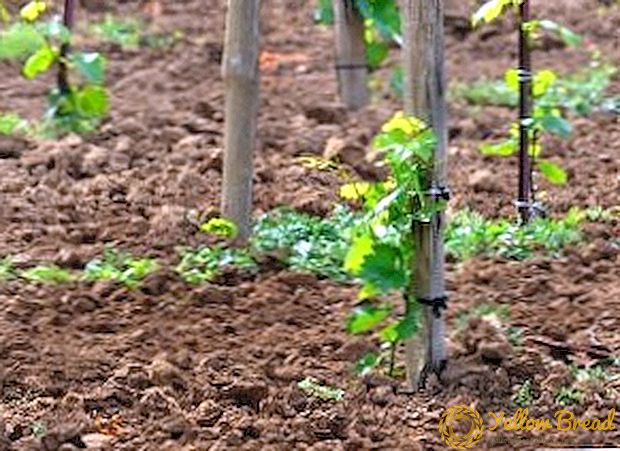
Kalmyk breed of cows today is considered to be the best breed of meat direction.
This breed of cattle is simply ideal for livestock in regions with harsh climatic conditions, but just as easy to care for in regions with a more moderate climate.
It differs significantly from cattle with European roots, since its ancestors are wild cows.
To keep and breed similar livestock at home is a very simple and profitable occupation.
More detailed and valuable information about these amazing cows can be found in our review below.
Breed description: the most useful information for breeders
The structure of the Kalmyk breed of cows is represented by four zonal types of animals: Lower Volga, North Caucasian, Siberian, and Kazakhstan.
Animals of all the above types often have different live weight. In the breed of cows described by us, two main types will be distinguished: late-ripening beef and precocious beef.
Compared with the late ripening type, early-ripening cows have slightly less weight, as well as less high weight.They are characterized by light bones, thin skin.
The growth of the whole body stops faster, which indicates earlier onset of fatty tissue formation. Thus, the slaughter yield in the late ripening type of cows is 2-4% lower than in animals of the early ripening meat type of the Kalmyk breed.
Today breeding works are carried out with the Kalmyk breed, they are aimed at improving early maturity, live weight, improving the constitution and external data. Improving the breed is based on purebred breeding.
External description or how to identify the Kalmyk breed cow
The exterior of the representatives of the Kalmyk breed of cows is quite beautiful. The main suit is red, brown-motley, red-motley or red, most often in white spots or marks (on the head, legs, less often on the body).
This breed refers to large meat, it is common for cows to reach a mass of 400-550 kilograms, and the average weight of bulls is about 600 to 1100 kilograms.
The build of cattle meat-working, its main characteristics are as follows:

- strong constitution of the body, which makes animals hardy;
- rather compact body length, which makes cows more mobile;
- in comparison with European breeds, Kalmyk cows have a very small, hook-nosed head, with an elongated front part. Frontal section is relatively short, concave.
- the back, withers and loins of the thoroughbred representatives of the breed are wide and even,
- legs are strong, correctly put, without difficulties transfer any weight of an animal;
- neck fleshy, rough, but very short - it seems that the head immediately passes into the shoulders;
- Kalmyk cows have a slightly bent occipital ridge, which creates the impression of a hump;
- very long horns directed upwards and inwards;
- the chest is wide and deep, the musculature of the dewlamp is well developed;
- all the musculature of this breed is very well developed, which gives the appearance of animals roundness;
- udder is relatively small, which is explained by the meat type of productivity of cows;
- the skeleton, though light, is strong enough, which is what the weight data of the animals require;
- the overall composition is harmonious, typical of beef cattle.
To reach adulthood, animals become very large in size, which of course is very good.After all, the larger the animal, the higher its meat productivity.
In particular, on average adult measurements Kalmyk breeds are:

- height at withers is between 125 and 130 centimeters;
- slanting body length from 145 to 160 centimeters, depending on the sex of the animal;
- chest girth of the shoulder blades 186-188 centimeters;
- chest depth 65-70 centimeters;
If the feeds consumed by Kalmyk cows are good and nutritious, then muscle mass will increase quickly
. The relief of the muscles in the back part of the body of the animal becomes especially good. For the period of cold weather, Kalmyk cows are overgrown with thick wool with down, which is for them the main thermostat.
The main advantages of the Kalmyk breed of cows or why they can be recommended to cattle breeders?
Hard natural selection, created by harsh living conditions, was focused on the development and strengthening of traits that give animals the maximum opportunity for survival.
The chances of survival were the animals most adapted, who had already developed certain properties. As a result, the Kalmyk breed of cows is endowed with unique traits and properties that greatly extol its value compared to other cow breeds.
Among the many characteristics, the main breed advantages can be called the following:

- Extremely high endurance.
These cows, without any damage to health, easily endure long frosty winters (up to 35-40 ° C), cold winds, and hot summer heat up to + 45 ° C and above, as well as many other adverse climatic conditions.
In winter, this breed of cows quickly grows thick hair, with a predominance of fluff.
The coat of this type with accumulated subcutaneous fats provide reliable protection from the cold and from the summer dry winds.
- Unpretentious content.
Kalmyk breed of cows is completely unpretentious to the conditions of detention and feeding characteristics.
This cattle is adapted to survive even in desert pastures, where the basis of the diet can only be feather-fescue grass, unsuitable for use by other animals.
They are able to go in search of food from 15 to 50 kilometers, as well as to look for food in the winter from under the snow. Thus, the content of this breed is assumed to be exclusively open, and during the whole year.
- Good meat productivity.
Despite the fact that animals consume only pasture not always of good quality, their meat has good taste.
In particular, it was noted that when animals are fed to feed with feed, the beef derived from them loses its unique qualities.
- Nutritious fat milk.
Although this breed is meat, to share their valuable milk cows are also capable.
Of course, in comparison with other breeds, their milkiness is very low, but Kalmyk Burenks are famous for the fact that the fat content of their milk reaches 4.2–6.4%.
- Easy calving as well as high reproducibility.
This breed is characterized by high rates of fertility and reproducibility.
Cows can produce healthy offspring for fifteen years. The hatchability percentage reaches 95.
Even with a lack of feed in the winter, and significant weight loss, the cows are well cared for, and in the spring periods they quickly recover lost forms.
- Good digestive system, perfectly adapted to grazing grass and roughage.
In animals of this breed of cattle the digestive system is well developed,which allows you to eat a large amount of pasture grass and coarse, bulk feed.
- The ability to recover from weight loss.
In the case of significant loss of body weight in the winter, the cows of this breed in the spring, with the appearance of good pastures, very quickly restore their lost form. Moreover, such mass drops do not bring any harm to health.
- Early maturity, rapid development.
Kalmyk cattle has an important economically useful property - a unique natural meager maturity.
By the age of eight months, weaned calves reach 30-35% of dry matter in the meat portion of the carcass, 11-16% fat and 20-26% protein.
- Excellent pasture use - everything is eaten.
Even if they are desert steppe pastures, cows will definitely find out how to fill their diet.

Little disadvantages of Kalmyk breed of cows
The arrogantly high maternal instinct among Kalmyk cows cannot remain unnoticed. Most often the mother, next to the calf behaves aggressively, even in relation to the owner, does not let anyone to him.
The level of custody of the calf is so large that this feature today is considered a disadvantage. In this aspect, animals have not yet lost instincts of wildlife.
What features of the Kalmyk cattle breed should each livestock breeder know?

Kalmyk breed of cows peculiar accumulate reserve nutrients in the body, especially fats. This feature begins to appear brightly in late autumn, before the onset of winter, and this property is not lost even when the pastures are scarce and the cattle were kept only on dry pasture.
Fat deposits initially begin to form in the form of watering under the skin, then on the internal organs, inside the muscles and between them.
If there is a lack of feed in winter, the deposited fats begin to be used in reverse order. Based on this, the Kalmyk cattle breed has a seasonal dynamics of live weight and fatness.
A cow during the winter can lose from 30 to 70 kilograms of live weight. At the same time, before going out to pasture, it will look like a medium meal. If the pasture was good before winter, the cow will have the highest fatness.
The digestive tract of these animals is very well developed and it allows you to eat a large number of pasture grasses and bulk, roughage.All the nutrients obtained are absorbed by the body as much as possible.
What helps Kalmyk cows to endure contrasting temperature conditions?

We have repeatedly emphasized the extraordinary endurance of the breed. It is also worth telling in more detail about the uniqueness of the skin of Kalmyk cows, which is the basis of such a feature.
In addition to the fact that their woolen hair is very long and has protective properties, it is also diluted with warming fluff.
During warm periods of the year, after the molt ends, the body becomes covered with smooth, shiny coat reflecting the sun's rays. What further, with the beginning of warm days, allows animals to spend a maximum of time in the steppe and on the mountain slopes. No other breed of cattle can boast of this feature.
Stable body temperature - this unusual and at the same time valuable ability of the organism has always caused an increased interest among experienced pastoralists.
The bottom line is the ability to maintain a stable body temperature and under the hot sun, and under the blowing of chilling winds, and in harsh wintering.Scientists have noted only minor fluctuations within a few degrees.
Such stability is maintained throughout the year. In these animals, with the onset of cold weather, the dermis thickens. It is worth noting a huge amount on the skin of sebaceous and sweat glands.
Features of breeding Kalmyk cows today
This breed is an excellent source of genetic material. The experiments showed good results when receiving high-quality cattle for fattening from Kalmyk females.
At present, in the arid steppes and semi-desert zones of Russia, there are about 90% of the cattle population of Kalmyk breed. In such prevailing conditions, there is no other breed of cows in the meat direction of productivity, which could make a healthy competition to Kalmyk animals.
The breed also gains special popularity for home keeping, since it is suitable for extensive type of cultivation.Many pastoralists stop only that large-scale pastures are required for the breeding of Kalmyk cows.
Previously, oxen of this breed of cattle were often used as labor, which is also practiced so far in the northern regions of Russia. Today, oxen are of great value due to the high taste qualities of their meat.
Indicators of productivity, or all the arguments why it is worth breeding this breed
The unpretentiousness of livestock to feed, as well as the possibility of using winter pastures, may cast doubt on the figures for the productivity of Kalmyk cattle breed. But at the same time, absolutely no costs are envisaged for the rearing of these cows.
Especially since the indicators breed productivity still are at a high level:

- Kalmyk breed of cattle is characterized by rapid fattening in spring and autumn periods, as well as persistent preservation of nutrition in winter periods and periods of flight droughts.
Animals can boast a high mass. Live weight of cows is 400 - 550 kilograms, gobies - 600 - 1000 kilograms.
- Distinguished by this breed and vysokopasnym precocity,and the ability to gain weight very quickly: at birth, the calf weighs about 22 to 25 kilograms; under conditions of good fattening, the daily gain in live weight of the calf of the Kalmyk breed will be about 1300 to 1500 grams.
Provided the costs are 5.6-6.0 feed units, animals give about one kilogram of gain.
Breeding bulls reach the weight of 450-550 kilograms by the age of 11/2, provided that the bulls are castrated, then 380-420 kilograms.
- The milkiness of cows of this breed is not replete with high rates, which is not surprising for meat breed.
The average annual milk yield ranges from 650 to 1200 kilograms of milk, but the fat content of this milk is very high - 6.4%, and the amount of proteins - 4.8%.
Such an indicator of fat for meat cows is simply uniquely high.
If cows are kept in good conditions and provide good feeding, then the average annual milk yield may increase to 1500 kilograms of milk.
- The meat has good taste, has a high biological and energy value.
The meat is fine-fibrous, rather soft with a slight manifestation of marbling. The carcass is dark red with yellow streaks of fat.
- The percentage of herd reproduction and keeping young stock in Kalmyk livestock is so high that there is no equal breed.
There are 89-95 calves per hundred females, these figures significantly exceed the existing analogues of other breeds of beef stock. Kalmyk cows can produce healthy, viable offspring for ten to fifteen years.

